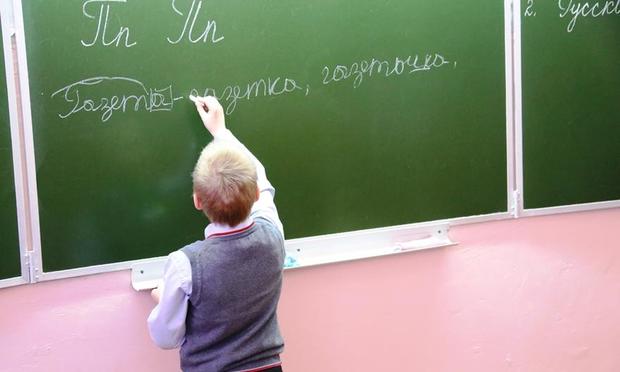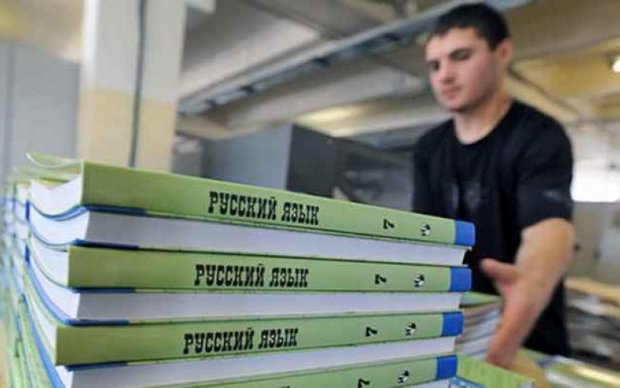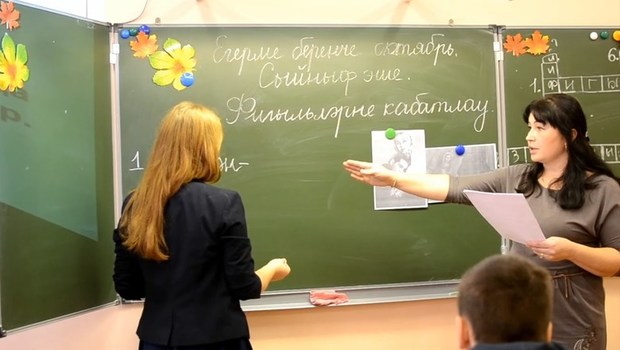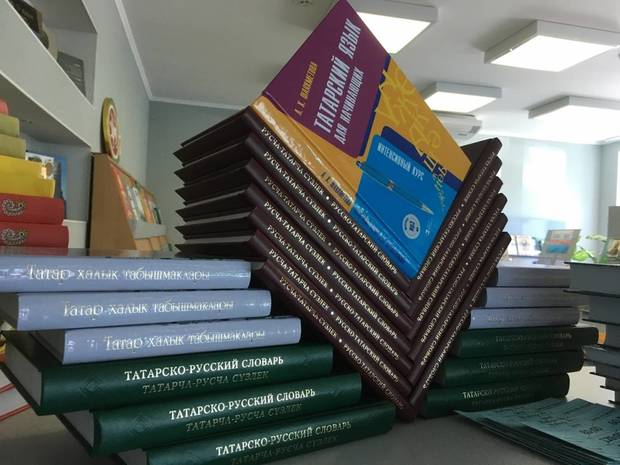''The gradual attack on the Russian language in Ukraine can be considered completed''
Russian journalist Andrey Babitsky thinks that making Russian pupils study national languages is unreasonable
At the beginning of September, the Verkhovna Rada of Ukraine adopted a new law on education whose key point is that teaching at local schools in Russian is banned. Realnoe Vremya reached out to famous Russian journalist Andrey Babitsky who lives in Donetsk and asked him what de-Russification in Donetsk could lead to in Ukraine, whether it would cause turbulence in society and if the cancellation of this reform would become a subject of haggling with Russia and what the linguistic mainstream inside our country can be linked to.
''The gradual attack on the Russian language and Russian space can be considered completed''
Mr Babitsky, what do you think about the Ukrainian educational reform? By the way, even Ukrainian deputies (Opposition Bloc if I am not mistaken) think that the law was adopted in a raw form.
Why was it adopted in a raw form? It was adopted in the form it needed to be adopted – like a complete ban on the Russian language and its final diversion from the system of education. Now the total ban is imposed not only on the Russian language but also several languages of national minorities living in Ukraine after the fifth grade when scientific and conceptual frameworks start to form. So I think everything is fine with this law. What can be considered raw and uncompleted here? The processes that had been taking place in Ukraine for many years ended. I think the idea also succeeded, and the authors of the law know what they do.
Do you mean that the authors initially understood it was not just a reform of education but a potential aggravation of Russian-Ukrainian relations?
I think that, actually, the meaning of the law is a bit wider. Not the aggravation of Russian-Ukrainians is the problem but the continuance of the process of the nation's artificial construction. Ukraine demonstrates that is consequently, step-by-step cuts all the links with Russia not only with a country – it cuts the links with the Russian cultural space. And language is an extremely important occurrence, a kind of matrix, that includes value frameworks, not only linguistic functions. Actually, the function of everyday communication is very secondary and instrumental.

''Ukraine wants to shift its new national consciousness to completely different conditions with completely different value paradigm, different heroes, different history, different moral and ethical compasses.'' Photo: hyser.com.ua
Language is much more important as a storage of meanings that fill the culture. In this respect, language is a forming beginning – it very seriously affects a personality, shapes it. Ukraine wants to shift its new national consciousness to completely different conditions with completely different value paradigm, different heroes, different history, different moral and ethical compasses. This is why I think the situation is wider than some instant problems linked with the war, exchange of blows and aggravation of Russia-Ukrainian relations. Ukraine just tries to completely separate from the Russian cultural and linguistic model.
How difficult do you think de-Russification will happen? And what can it lead to?
I think it will result in nothing in the end, you know. These attempts have being made for a long time. Ukrainisation has been taking place for years. It actually began after the dissolution of the USSR, though in quite soft ways: Ukraine did not rush as fast as Moldova or Georgia. It started to attack more carefully, which is clear because there was a big number of the Russian-speaking population there – it was not possible to cut all these threads as it would cause a serious protest. Now the gradual attack on the Russian language and Russian space can be considered completed because the language is the last frontier of defence. Remember why Donbass ran riot – the cancellation of the law on regional languages was the trigger. The question about language is very sensible – it is almost making refuse the national Russian identity, which Donbass couldn't afford.
As for what's happening in Ukraine, in general, to tell the truth, I don't think the artificial, ill-conceived and very contradictory process of construction of the Ukrainian nation will end successfully. We see that Ukraine is at the stage of dissolution, everything is collapsing: the economy, the country itself, the country's structure. I think that the attack on everything Russian will continue in all the areas for some time more (in addition, it will have a denser Nazi atmosphere), but it won't give real results because Russians anyway remain the biggest national group after Ukrainians in this country.

''I think there will be a kind of deaf opposition: people won't give their language, they will continue holding, not in open forms but using, for instance, domestic education or something similar.'' Photo: novorosinform.org
It is clear that Russians might dislike this law. But we don't see protests because the situation in Ukraine is not conducive to openly opposing something. I think there will be a kind of deaf opposition: people won't give their language, they will continue holding, not in open forms but using, for instance, domestic education or something similar. Ukraine doesn't care when the end comes – I mean Nazi Ukraine, that is crazed and absolutely inhuman. And everything will be back on track. I think the unity of the Ukrainian and Russian peoples will recover all in all. De-Nazification and rehabilitation of national languages will start.
Yes, Ukrainian culture exists – it is linked with the countryside, folklore. However, it is very local. Addition of Russian culture to it expanded its space. Actually, Ukrainian culture is part of Russian culture, it is indivisible. They tried to cut all this space to ''folk place'' and, in fact, no culture remained: the folklore is forgotten. Plus, the Nazi past was added that already became one of the foundations of the artificially created nation. It is very complicated to bring up a full-fledged system of values from it. That's why it seems to me that this construction is doomed for external and internal reasons. This construction can't be completed.
''I completely understand the desire of the Tatars to conserve it, put effort into its development ''
Journalist Oleg Kashin presupposes that the reform might be an instrument in haggling with Russia. He writes that ''Maybe <…> Ukraine will save Russian schools instead of recovery of borders in Donetsk and Lugansk Oblasts or something of this kind.'' What do you think about this thought?
I think Kashin goes too far in his instrumentalism. I already said that the global task is solved – a new generation needs to be brought up that won't be linked with Russian culture and the Russian language, that will be a very simplified, folk Nazi cultural matrix.

''I completely understand the desire of the Tatars to conserve it, put effort into its development. But I don't think that making Russian pupils study Tatar reasonable. Many Russians don't think it is necessary.'' Photo: inkazan.ru
I don't think it can be a subject of haggling because we see that radicalisation of actions of the Ukrainian authorities is an uninterrupted process and it is not linked with some attempts to establish relations with Moscow even if they are connected with blackmail. This process will be the maximum, extreme, endless deny of all Russian things and an attempts to sail off this Russian bank as far as possible.
Russia won't haggle, and Kyiv knows it perfectly. Usual statements of the Ministry of Foreign Affairs about the discriminatory nature of this law were enough. But we did not see any big scandal about it, right? For Moscow, the current Ukrainian power is not able to come to an agreement. Nobody will haggle with it. In fact, today the Kremlin is just observing the decay that is taking place in Ukraine, and it is not going to have relations with leaders of this decay besides those who are defined by the ''Normand format''. There is a tiny usual need to communicate, but nothing more. this is why I think Oleg Kashin fantasises about haggling.
Mr Babitsky, do you think the linguistic problem has been solved in Russia? Tension arose some time ago because of studying national languages at schools. Why do you think this topic has been prioritised inside the country?
Tatar is the first language of the native national minority of Russia in terms of their number. I completely understand the desire of the Tatars to conserve it, put effort into its development. But I don't think that making Russian pupils study Tatar reasonable. Many Russians don't think it is necessary. It is like making a Tatar person learn the Ossetian language, for instance. It seems to me that there is no sense in such coercion at all. As for national languages, I think the problem has been mainly solved: they have been under protection everywhere give or take, they are taught at schools, educational programmes have time for it, there are teachers. Languages of small peoples just die for natural reasons. National regions very often refuse their own languages, which is sad, in favour of Russian that they link perspectives of their own development with.

''The Tatar language, of course, is luckier – it is the language of a great culture. Let's say a big literary tradition is linked with the Tatar, Turkic language, and it has room to expand its borders.'' Photo: kazanreporter.ru
There was a careful attitude to national cultures and languages as the foundation of these cultures under in the Soviet power. But some national languages die naturally without depending on the country's will and its efforts. It is very difficult to cope with this process. I worked in the Caucasus for a long time. And I saw how languages become domestic because the major cultural load is on the Russian language as well as the load linked with science, some areas where the conceptual framework is built on the Russian linguistic basis. Only everyday problems are discussed in national languages. It helps a gradual collapse of languages and reduces their area of use. I don't know how to cope with it and whether it is needed.
The Tatar language, of course, is luckier – it is the language of a great culture. Let's say a big literary tradition is linked with the Tatar, Turkic language, and it has room to expand its borders. I will repeat that Tatar is lucky, not all the languages are in such a favourable situation.